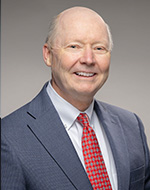Delaware’s Chief Justice Visits Wilmington University School of Law


It’s not every day that aspiring lawyers have a chance to chat with a chief justice, so when Delaware’s top judge visited Wilmington University School of Law, students enjoyed hearing his insights and initiatives, beginning with the Delaware Bench and Bar Diversity Project.
It’s about “making sure that the bench and the bar in Delaware reflect the population that we serve,” says of the Delaware Supreme Court, citing a report with 50 ideas to increase diversity. “I am pleased to say that we have made substantial progress on all of those recommendations.”
Significant changes include offering the bar exam twice a year instead of once and reforming the test itself so “it’s doing what it’s supposed to do,” he says, adding that there shouldn’t be barriers for anyone wishing to take the test.
Sitting beside Phillip Closius, J.D., the law school’s dean, Chief Justice Seitz casually chatted with the audience, tackling topics from the impact of artificial intelligence on the legal industry to the importance of “that human connection in the practice of law.”
Of all the cases he’s tried since becoming a lawyer in 1983, Chief Justice Seitz shared one that stands out: New Jersey v. Delaware, a boundary dispute over a proposed liquefied natural gas terminal in New Jersey that would have extended into the Delaware River.
“The only way a state can sue another state is in the United States Supreme Court as an original case,” he says. “I spent two and a half years of my life litigating on behalf of the state of Delaware in the United States Supreme Court.”
Delaware won, “although all of the justices on the U.S. Supreme Court from New Jersey dissented,” says Chief Justice Seitz, referring to it as a “once-in-a-lifetime case.”
As for advice, he encourages “newer lawyers to take cases pro bono because sometimes those are the cases where you can get into the courtroom the fastest.” And if considering a clerkship, Chief Justice Seitz says, “Frankly, it gives you a leg up, I think, in the hiring process.”
“It’s just another example of the endless support that Wilmington University has received from the Delaware legal community in building this law school.” — Elijah Westog, WilmU Law student
When asked why out-of-state students may want to stay in Delaware, he praised the First State’s legal opportunities, mentoring and accessibility.
“You can do almost any area of law and make a successful living out of it in Delaware,” says Chief Justice Seitz, calling it “a very warm place to practice law.”
And he received a warm reception at WilmU Law.
“We were able to talk with him after the main discussion,” says law student Dalton Lahti. “I found that really inspirational.”
“It’s just another example of the endless support that Wilmington University has received from the Delaware legal community in building this law school,” says classmate Elijah Westog. “The students are constantly impressed and grateful for that.”
Wilmington University School of Law helps students succeed in an increasingly competitive marketplace with its dedicated professors, program options, and unique curricula.



